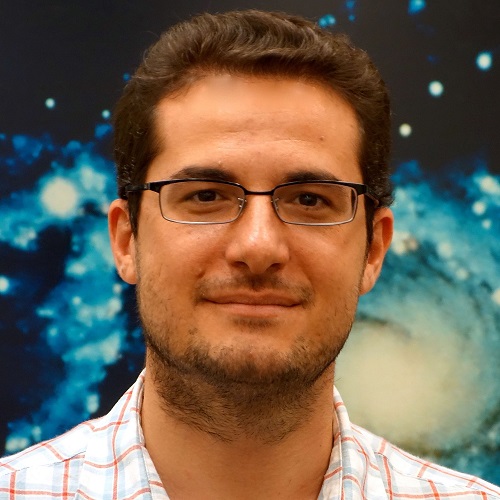Science and Mathematics
Physics Colloquium: “Good Light and Bad Light in Gravitational-Wave Detectors”
November 7, 2024 at 3:30pm – 4:45pm EST
Physics Building, 202/204
This event has already occurred. The information may no longer be valid.

The Syracuse University Physics Department is pleased to welcome Dr. Antonios Kontos, Associate Professor at Bard College.
Professor Kontos is an experimental physicist with experience in optics and nuclear experiments. He got his diploma from the National Technical University of Athens in 2006, and his PhD in Nuclear Astrophysics from the University of Notre Dame in 2012. After working for his first postdoc at the National Superconducting Cyclotron Laboratory at Michigan State University, he moved to MIT where he worked on experimental quantum optics in the LIGO group there. The switch in experimental fields was as dramatic as it sounds, but was a great opportunity to gain a broad perspective in experimental physics. Professor Kontos is now an associate Professor at Bard College, enjoying working with undergraduates in various experimental optics projects.
“Good Light and Bad Light in Gravitational-Wave Detectors”
While Gravitational-wave detectors are very different from telescopes, light and mirrors are essential parts of their operation. It is a remarkable achievement of physics and engineering that they are able to detect the tiny vibrations of spacetime, using micron size electromagnetic oscillations. However, light in gravitational-wave detectors can be used for more than just the way we measure changes in length. It can be a diagnostic, a characterization tool, or too much of it and it can turn into a noise source. In this talk, Dr. Kontos will cover various projects that highlight the versatility of life as an experimentalist in GW instrumentation. This includes his latest line of research, which relates to the development of the Next Generation Gravitational-wave detector based in the United States, namely the Cosmic Explorer GW detector. Some aspects of working in a primarily undergraduate institution will also be highlighted. Warning: this talk will have no quantum mechanics.
This event was published on September 23, 2024.
Event Details
- Category
- Science and Mathematics
- Type
- Talks
- Region
- Campus
- Open to
- Public
- Organizer
- CAS-Department of Physics
- Contact
- Meghan Murphy
phyadmin@syr.edu
(315) 443-3901
- Accessibility
- Contact Meghan Murphy to request accommodations
